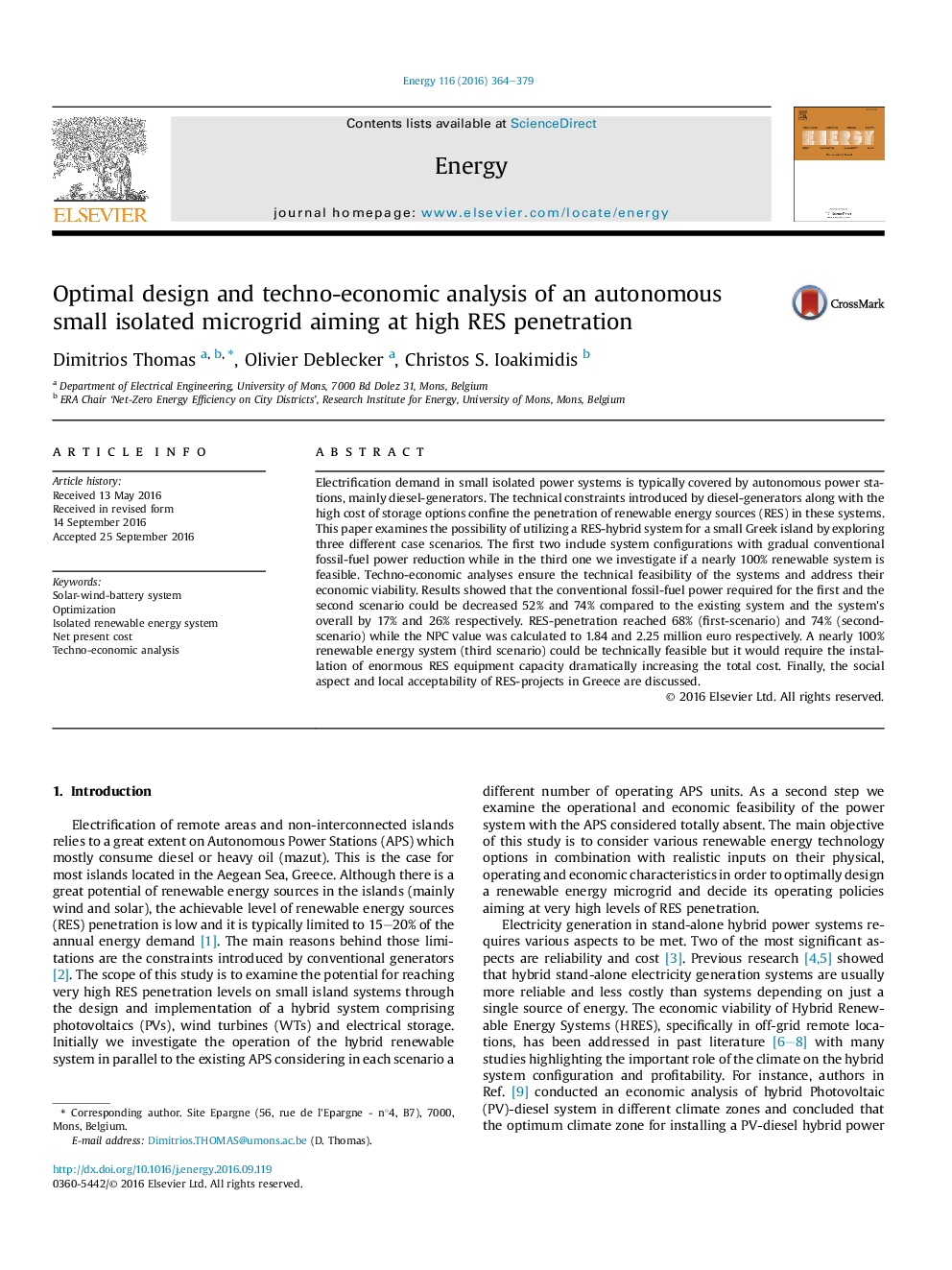| Article ID | Journal | Published Year | Pages | File Type |
|---|---|---|---|---|
| 5477294 | Energy | 2016 | 16 Pages |
Abstract
Electrification demand in small isolated power systems is typically covered by autonomous power stations, mainly diesel-generators. The technical constraints introduced by diesel-generators along with the high cost of storage options confine the penetration of renewable energy sources (RES) in these systems. This paper examines the possibility of utilizing a RES-hybrid system for a small Greek island by exploring three different case scenarios. The first two include system configurations with gradual conventional fossil-fuel power reduction while in the third one we investigate if a nearly 100% renewable system is feasible. Techno-economic analyses ensure the technical feasibility of the systems and address their economic viability. Results showed that the conventional fossil-fuel power required for the first and the second scenario could be decreased 52% and 74% compared to the existing system and the system's overall by 17% and 26% respectively. RES-penetration reached 68% (first-scenario) and 74% (second-scenario) while the NPC value was calculated to 1.84 and 2.25 million euro respectively. A nearly 100% renewable energy system (third scenario) could be technically feasible but it would require the installation of enormous RES equipment capacity dramatically increasing the total cost. Finally, the social aspect and local acceptability of RES-projects in Greece are discussed.
Related Topics
Physical Sciences and Engineering
Energy
Energy (General)
Authors
Dimitrios Thomas, Olivier Deblecker, Christos S. Ioakimidis,
